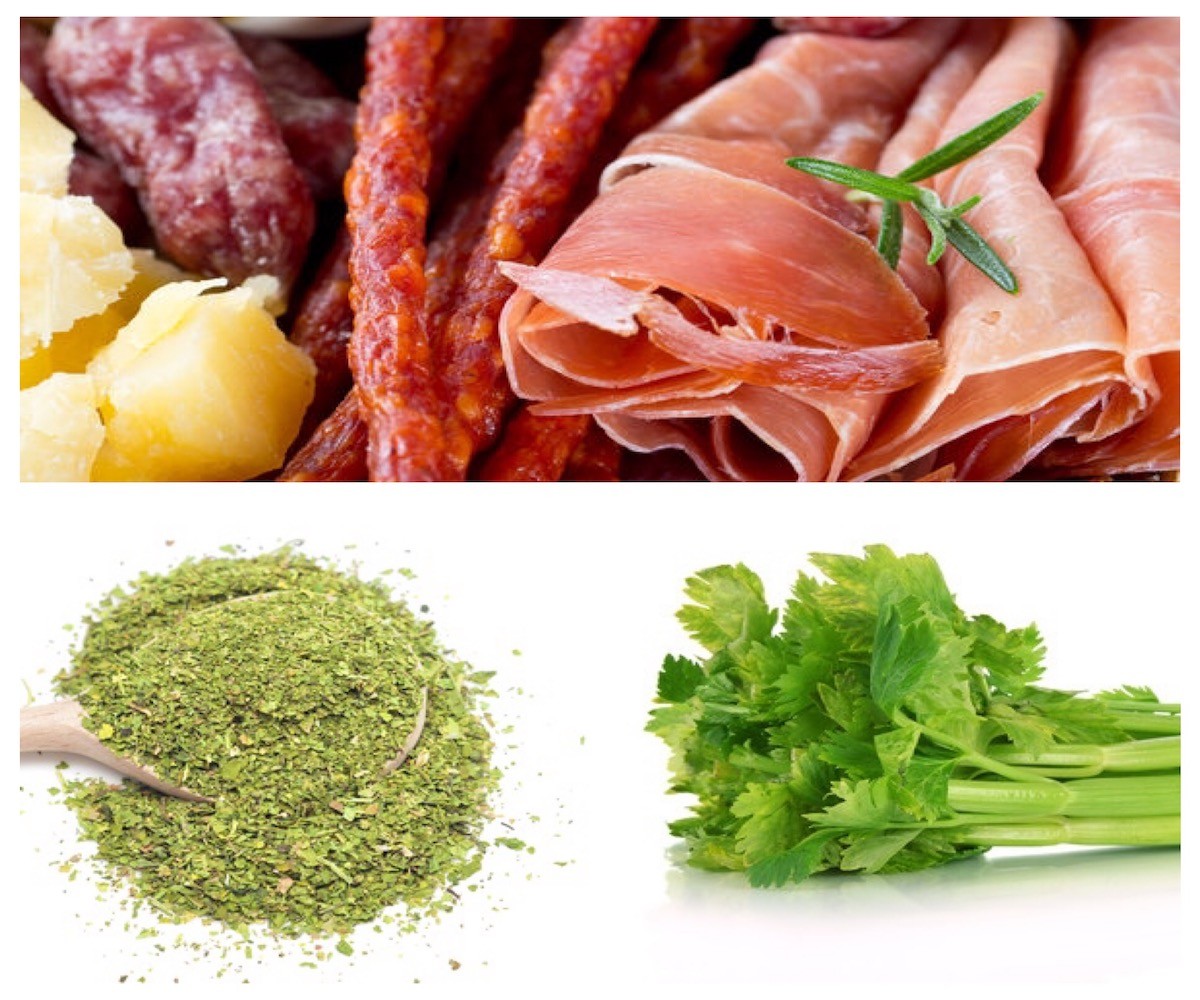Although natural ingredients like celery powder may make processed meats sound much safer than conventional options, we don’t have evidence to support that. Even small amounts of processed meats eaten regularly – such as having a daily hot dog — increase the risk of colorectal and stomach cancers. Whether you choose conventional or “natural” processed meats, until research becomes clearer, the best advice is to minimize them all.

Added nitrates and nitrites
Curing meat with nitrate or nitrite is a long-standing way to extend storage time and prevent growth of bacteria like those that cause botulism, a deadly food-borne illness. This curing also produces the meat’s characteristic flavor and pink color.
Manufacturers using celery products can claim their meat has “no nitrates or nitrites added,” except for those naturally occurring. But celery is naturally high in nitrates, so adding celery powder to meat is simply another way of providing nitrates. In passing from mouth to stomach, nitrates get converted to nitrite.
The problem with nitrites is that they can combine with other compounds in meat or in the digestive tract and form carcinogenic compounds, such as nitrosamines.
Processed meats beyond nitrates
Counting on processed meats made with “naturally-occurring” ingredients like celery powder addresses only one aspect of processed meats’ link to cancer. Even if risk was reduced by this swap, other risks remain:
- Smoked meat increases the concentration of nitroso compounds that pose risk and also contains another type of compound associated with cancer risk, called polycyclic aromatic hydrocarbons (PAHs). Today’s smoking processes produce lower levels of PAHs than decades ago, but have not removed them.
- Salted meat, with its high sodium content, increases formation of nitrosamines within the gut, and seems to particularly raise risk of stomach cancer by damaging the stomach lining and increasing the risk from the bacteria H. pylori. Sodium content of meats with celery powder is usually comparable to that of meats cured with nitrites or nitrates.
What to do now
Emerging research suggests that the source of nitrates in context of your overall eating habits, may influence cancer risk.
Studies now suggest that nitrite can form either compounds important for cell signaling and heart health, or the nitrosamines linked with processed meat and cancer. More research is needed, but it seems that vitamin C and the phytochemicals in vegetables and fruits push development along the healthful path. Diets high in red and processed meats lead to the formation of compounds that pose cancer risk.
For now, it’s too early to say bacon produced with celery powder or as part of a vegetable stew poses less cancer risk as the same amount of conventional bacon by itself. That doesn’t mean that you need to completely give up bacon, sausage, ham and other favorite processed meats. But if you’ve been eating these meats regularly, it’s worth rethinking old habits.
And if you do include processed meat in any form, remember to look at what else is on the table, too!
For more on processed meat, read Bacon, Hot Dogs and Lunch Meat – Is it Processed Meat?
AICR HealthTalk is by Karen Collins, MS, RDN.






The celery juice is treated with an enzyme to convert the nitrates to nitrites BEFORE it’s used on the bacon. So you’re ingesting lots of nitrites; probably more than with regulated curing agents.
My husband had bladder cancer and has to be checked 2or3 timesa year for recurrence. He LOVES bacon and ham.
I’ve recently found some amazingly-good plant-based sausages made by Field Roast. They are carried by a local grocery store chain here in Florida called Publix. Also Target. Even my wife likes them, and she’s a diehard red-meat-lover and vegan-resistor! I looked on the package just now, and there are no nitrates or celery powder at all in them.